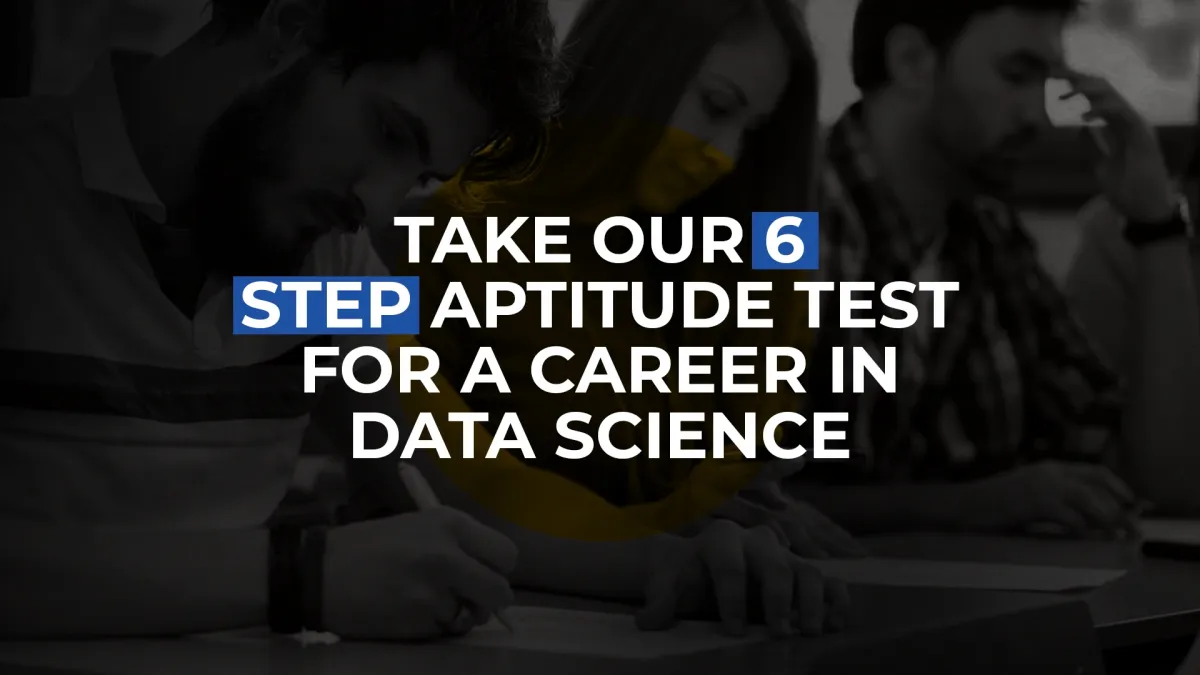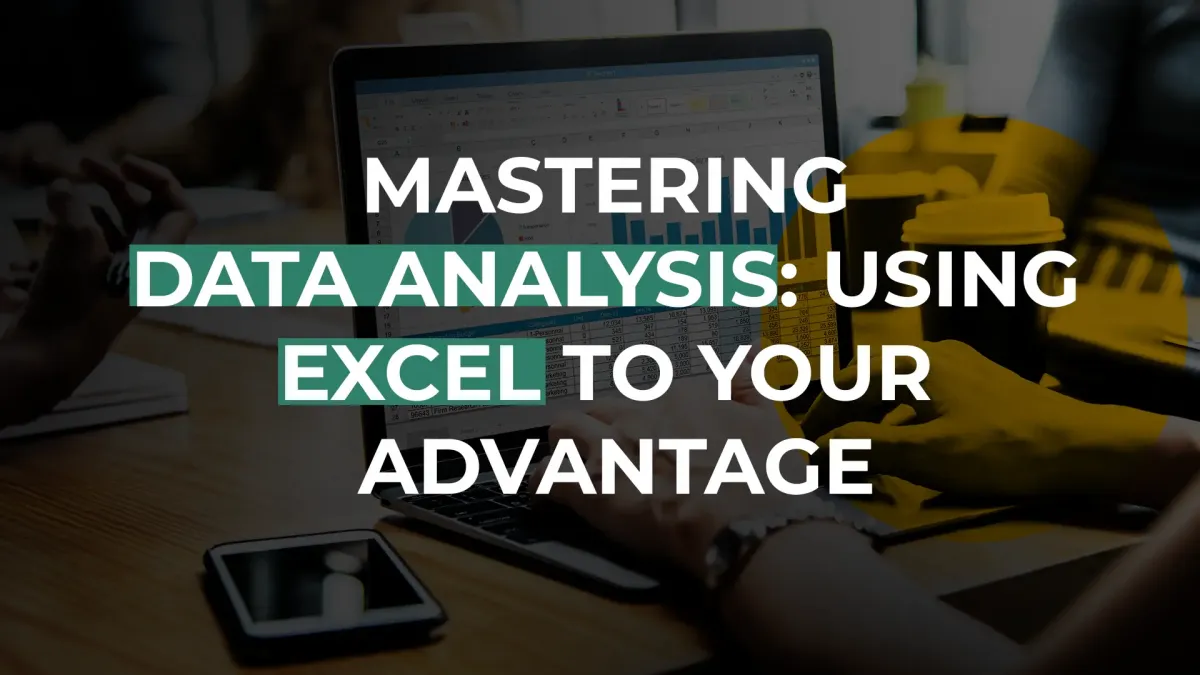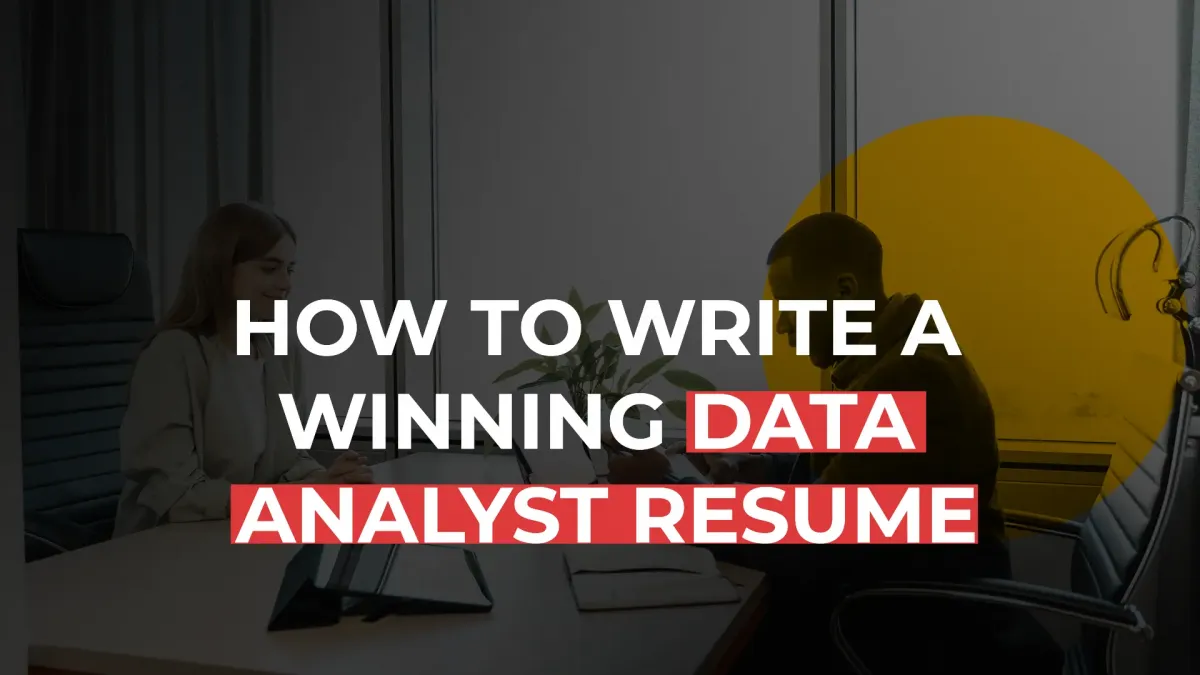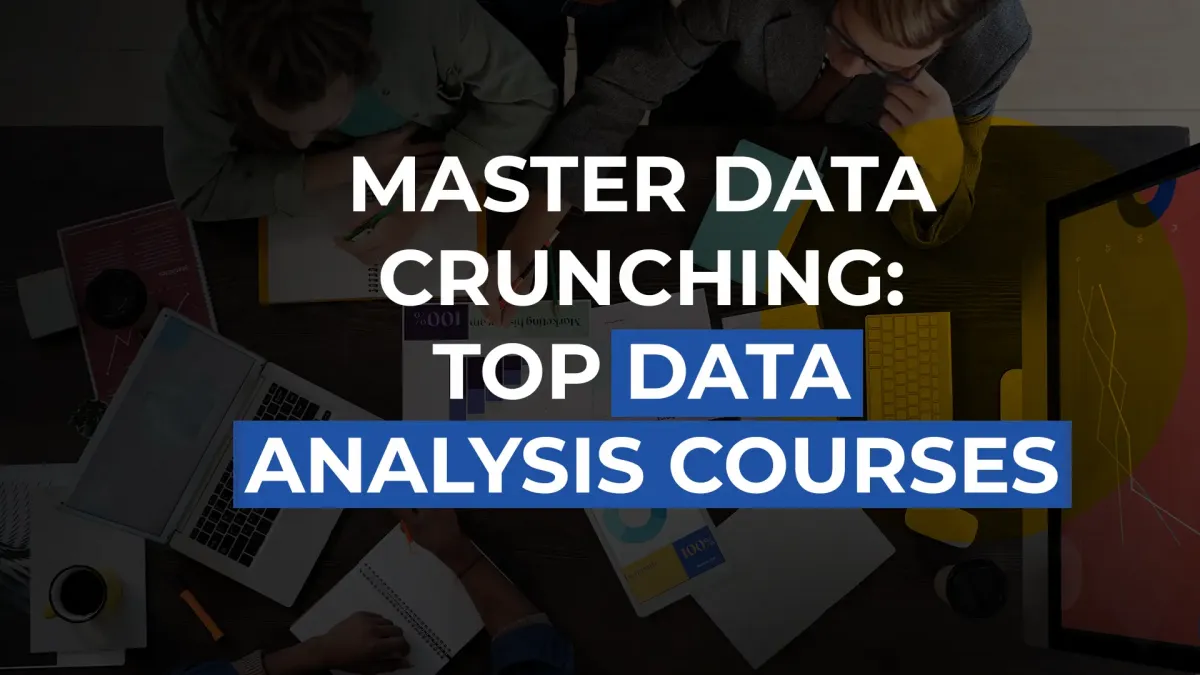Every time someone puts up a post on social media, enters medical information, completes an online transaction or types a query into a search engine, it all gets filed under big data. Given how much people are hooked on their devices, big data is only going to get bigger.
Specialised roles like data scientist, data analyst and data engineers have been develop to analyse and decipher raw digital data to provide specific solutions. A data science certification is emerging as a qualification of choice for many professionals in India, and even across the world.
The data scientist course explores a fascinating field where the possibilities are many and the prospects are looking very good. It may even be the ideal career for you. But how to be sure? Where do your talents lie? If you’re intrigued yet confused about which role is best suited for you, keep reading. We’ve created 6 critical aptitude tests common to all the roles within this existing new field. They will help you figure out whether or not you have data science in your DNA.
If you identify with three or more of the following situations, you are well suited for a career in data science. Ready to find out? Great, let’s get started.
TEST #1: How do you respond to data?

Does this scare you? Or are you leaning in for a closer look?
If the presence of numbers and figures makes you want to drop your screen as you run away screaming in the opposite direction, this is not the career for you.
However, if you’re still here, looking at the chart, maybe you’re already trying to figure out a trend or pattern… then good news, you’re passed the first test. You’re not easily intimidated by data or big numbers. Any of the three roles in data science could appeal to you. Give yourself one big tick.
TEST #2: Open your wardrobe and find a red t-shirt in under 5 seconds.
Your time starts now… five, four, three, two and…
If you’re standing in front of the screen with a red t-shirt in your hands, congratulations. You’ve just exhibited logical and organised behaviour. You knew how to retrieve a specific colour and pattern of clothing in such a limited time. You knew where to look, the desired item was within easy reach and you didn’t fret over the deadline. If your clothes are neatly arranged into piles and segregated by function, this reflects a mind that love structure and organisation. You might enjoy data engineering where you will be expected to build, organise, maintain and test data. Give yourself another big tick.
TEST #3: How do you handle a given scenario?
Let’s imagine you’ve entered a large department store, looking for a new pair of blue jeans. Which of the two situations best describes you?
- You found your jeans, handed them in for alterations and now enjoying a refreshing cold drink while you wait for the store tailor to alter the pants.
OR
B) You’re still in the store looking for the best deal on jeans. You’ve already been to other shops, looked at prices on amazon and other commerce sites. You are getting mentally ready to start a debate with the salesperson and persuade them to match the 200 rupee discount the sales you found online.
If you picked scenario B, congratulations! You have an aptitude for problem solving. You’ve analysed the data and done the research. You’ve also found out the best strategy to apply the solution. You might want to enrol in a data analytics course, where you have to retrieve data, compare and analyse it, before finally drawing meaningful conclusions from your findings.
Those of you who picked option A, and decided a cold, refreshing drink was more important than spending hours over a pair of jeans… well done! You also passed the test. You know how to prioritise your time, you exhibited quick thinking and clearly you know how to make good choices. So give yourself a pat on the back, and another big tick in the book.
TEST #4: Let’s talk statistics
This test is simple. Let’s take a closer look at India’s favourite past time, cricket. Here below is a long list of statistics used in playing the sport. Each of these stats will have a unique way of being calculated. So how many different types of statistical data can you identify from the list?
[ IMAGE of a list of stats = Batting Average, Bowling average, Strike Rate, Runs Saved, Run Rate, Economy Rate, Ask Rate, predicted score, Win probability….]
If you spotted averages, means, probability and forecasting, then kudos to you! You have shown a natural aptitude for maths and statistics. Your keen eye will serve you well in a career in data science. So go on, give yourself that well-deserved tick.
TEST #5: Get with the programme
The 5th test is for software tools and programming techniques. If you already know software like Hadoop, Spark, Python and R, well done! You’ve pass this level. However, if you don’t know these programmes, no worries. Of all the aptitudes listed here, this is the easiest to learn. If you passed test #2 for logical thinking or test #5 for maths and statistics, you can safely assume you will pass this test as well. All you need is some motivation to learn by enrolling yourself in any of the highly rated data analytics courses. You’ll also earn one more tick.
TEST #6: It’s business as usual
We’ve reach the 6th and final aptitude test to find out if you’ve got data science eligibility. So here we go. Let’s assume that you are going to complete your graduation in a few months. Your father sits you down and informs you that he has spoken to some of his friends about possible jobs after you graduate. He has written down 5 potential jobs for you. You scan through the list to see if you would be interested in any of them. They are:
1. A doctor wants to know how many vaccines she should order for the next quarter.
2. A TV producer is trying to figure out which genre to plan his next hit series
3. The owner of a department store wants to know which products should go on sale during the festive period.
4. The distributor for mobile phones is uncertain about which local stores it should first launch the new phone model.
5. The auto dealer wants to know why its sales have gone down in the last 3 months
If you’re naturally inclined to pick any one of the problems listed above and find a solution, then congratulations, you have shown to possess business understanding and domain knowledge. You just got yourself a tick.
In conclusion
Lets do a quick recap. The 6 aptitudes required are:
1. An interest in data and numbers
2. Logical thinking and organisation skills
3. Ability to process certain situations
4. Decoding statistics
5. Knowledge of software programmes
6. Understanding business strategies
If you’ve ticked 2 to 3 tests, you have the basic aptitude. Although, you may want to do a little more research on data science before taking the final decision.
If you passed 4 or 5 tests, then you definitely have what it takes to become a data scientist. If you passed all 6, then bravo! You just found your perfect role!
A data science certification or a PG diploma in data science will help you fine tune your skills and make you a sought after professional in this field.
Click here to know more about one of the best data science courses








Leave A Comment